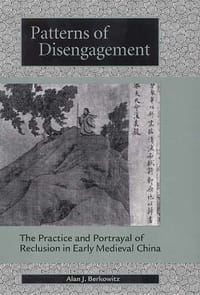While the customary path to achievement in traditional China was through service to the state, from the earliest times certain individuals had been acclaimed for repudiating an official career. This book traces the formulation and portrayal of the practice of reclusion in China from the earliest times through the sixth century, by which time reclusion had taken on its enduring character.
Those men who decided to withhold their service to state governance fit the dictum from the Book of Changes of a man who “does not serve a king or lord; he elevates in priority his own affairs.” This characterization came to serve as a byword of individual and voluntary withdrawal, the image of the man whose lofty resolve could not be humbled for service to a temporal ruler. Men who eschewed official appointments in favor of pursuing their own personal ideals were known by such appellations as “hidden men” (yinshi), “disengaged persons” (yimin), “high-minded men” (gaoshi), and “scholars-at-home” (chushi).
What distinguished these men was a particular strength of character that underlay their conduct: they received approbation for maintaining their resolve, their mettle, their integrity, and their moral and personal values in the face of adversity, threat, or temptation. This book reveals that those who opted for a life of reclusion had a variety of motivations for their decisions and conducted widely divergent ways of life. The lives of these men epitomize the distinctive nature of substantive reclusion, differentiating them from those of the intelligentsia who, on occasion, voiced their desire for disengagement or for retreat, but who nevertheless found or retained their places in government office. Throughout, the author places the recluse and reclusion within the social, political, intellectual, religious, and literary contexts of the times.
Alan Berkowitz has a PhD in Classical Chinese Language and Literature from the University of Washington, in Seattle, and currently is Associate Professor of Chinese at Swarthmore College, and Section Head of Chinese and Chair of the Asian Studies Program.Alan has lived in China and Taiwan for extended periods, especially Nanjing, Beijing, and Taipei.He has traveled throughout m...

